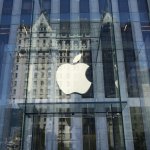An annual iPhone: does upgrade equal enlightenment?

Since the first iPhone was released on January 9, 2007, Apple has brought out a new model annually and encouraged users to upgrade their iPhone. In its earlier iterations, upgrading on each release made sense: the speed of technological innovation meant that palpable improvements to the hardware made each new model distinct.
But as the potential for enhancement slowed, so did older models of the phone – now software improvements necessitated new phones. In 2020, Apple was fined £21m for deliberately slowing older models of iPhone, a process it admitted in 2017. Although its internal decisions were justified by Apple management, the fine was incurred because consumers were not warned that keeping older models up to date on the latest iOS would slow their devices. The same happens to this day, albeit with clearer warnings before each update. An upgraded iPhone always runs at optimum speed, naturally.
Although this points to a need for semi-regular upgrade (every two or three years, say), the software on models released in the previous three years should run the latest iOS without performance changes. So why spend on the latest iPhone as it’s released?
Ten years ago, the Apple store became part of a day’s shopping; trying out new camera effects on the iPads, marveling at the unlock speed of the latest iPhone. According to Michael Heller and James Salzman, writing in Mine! How the Hidden Rules of Ownership Control Our Lives, there’s a correlation between physical possession and ownership, the instinctual attachment to an item that is held.
The stores’ encouragement to play with products causes customers to develop a sense of possession, which increases their estimation of the value of the product. Suddenly, the cost of upgrading to this newer, better model seems justified. It is no longer the newest iPhone; it is my newest iPhone.
This might account for year-round sales, but what of rush to have the newest iPhone the moment it’s released, the queue outside Apple stores the morning that upgrades became available, and the scale of preorders on a product that is as yet unseen? Do jargon-heavy news releases from Apple inspire need? Is life duller without the A15 Bionic chip with a 5-core GPU that the iPhone 14 boasts? Probably not, objectively, but you’d never believe it.
Why upgrade the iPhone?
According to Reddit, there is financial merit in annual iPhone upgrades. The iPhone upgrade program offered by Apple means the amount you’d spend on the release of each new model is less than the cost of upgrade every three years (the general perception of the average time before a new model is physically required because of those iOS/hardware slowdowns).
There’s a palpable sense that taking annual upgrades is a clever financial move that goes some way to demarcating those who do so as both wiser and, more prosaically, as part of an elite that can afford the very latest in gadgetry.
In the newest season of Netflix’s Big Mouth (October 2022), the ‘Apple Brooch’ promises (literally, in a husky voice) to make its wearer ‘f*ckable’ (S06 E06). Being able to afford an iPhone at the time of its release demonstrates a level of disposable income that isn’t available to the average person, and therefore making better breeding stock. You’ll never look at an iPhone upgrade in quite the same way.
In his blog, Ivan Sanders suggests the motivation for desire for the latest iPhone is a defiance of the average. For a couple of months, the newest model of iPhone is scarce among the general public; not only is the individual sporting one able to afford it, but they could also afford it first.
A popular Reddit thread on why folk feel they should upgrade to the new iPhone posits that any perceived financial merit takes on a second meaning. Many cite the fact that others spend their money on alcohol, drugs, and women, so why not a new shiny thing? One user justifies an annual upgrade by comparison with the amount that his wife spends on her hair and nails each month. The idea begins to form that while the layman fritters away his earnings on transient junk, the more enlightened worker invests his earnings in an iPhone. This is how the norm is defied, and why yearly upgrades hold social currency.









